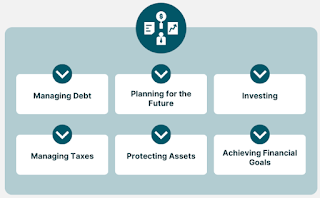Digital Nomad Insurance: Protecting Your Remote Work Lifestyle
Digital nomads are individuals who work remotely while traveling or living in different countries. While this lifestyle offers incredible flexibility and freedom, it also comes with its own set of challenges, including the need for proper health and travel insurance.
Digital nomad insurance is specifically designed to meet the unique needs of remote workers who are constantly on the move. This type of insurance typically includes coverage for medical expenses, emergency medical evacuation, trip cancellation, and personal liability.
Here are some reasons why digital nomad insurance is essential for protecting your remote work lifestyle:
Medical coverage:
As a digital nomad, you may not have access to your home country's healthcare system. Having medical insurance while traveling ensures that you can receive the necessary medical care without worrying about high out-of-pocket expenses.
Emergency medical evacuation:
In the event of a serious illness or injury, you may need to be evacuated to a hospital with better facilities. Digital nomad insurance can cover the costs of emergency medical evacuation, ensuring that you receive the best possible care.
Trip cancellation:
Travel plans can change unexpectedly due to unforeseen events such as natural disasters, political unrest, or personal emergencies. Digital nomad insurance can reimburse you for the costs of cancellations or changes to your travel plans.
Personal liability:
Accidents can happen at any time, and you may be held liable for damages or injuries caused to others. Digital nomad insurance can provide coverage for legal expenses and compensation in case you are sued.
Peace of mind:
Knowing that you have insurance coverage while working remotely can give you peace of mind and allow you to focus on your work and travel experiences without the added stress of potential risks.
Overall, digital nomad insurance is a crucial investment for protecting your remote work lifestyle and ensuring that you can continue to enjoy the freedoms and opportunities that come with working remotely from anywhere in the world. Be sure to research different insurance providers and policies to find the best coverage that meets your specific needs as a digital nomad.














![TCS Online Communities Even Groups CodeVita Problem [Solved] TCS Online Communities Even Groups CodeVita Problem [Solved]](https://blogger.googleusercontent.com/img/b/R29vZ2xl/AVvXsEjx89u8q3ee7UgMo5AHWuy3ZT2YJ3P-QsD-QYwsb8TTEBeE3858ynYC71OZfS_RBVD9qDyTtVgkZ1EHPI9xdgc8dG4z_KYqSWVCwsisMBU5H5E_g6bbqjbzArNqqYF0EvBdvQ6FnOaBBiOOg1bHpul9wfHjCa0uYttOUo9RhlPKdRth-N_E1RZCiPBCqRvs/w90-h67-p-k-no-nu/1.jpg)








